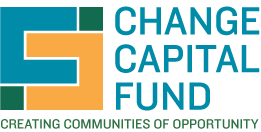In 1996 an extraordinary group of financial and philanthropic institutions came together to form the Neighborhood 2000 Fund to provide support for New York’s Community Development Corporations. This collaborative of corporate and foundation donors has stayed together for over two decades, operating as the Neighborhood Opportunities Fund (NOF) starting in 2000 and relaunching as the Change Capital Fund in 2014.
The donor collaborative has supported the development of anchor institutions in many of the city’s poorest neighborhoods by investing over $30 million in 34 organizations in consecutive four-year cycles. This relatively large, long-term and flexible funding has helped grantees take on multi-year projects and strengthened the capacity of nonprofits to rebuild communities, increase the supply of affordable housing and increase economic mobility.
Community development corporations have expanded beyond their initial affordable housing focus to encompass more comprehensive strategies. When the funders launched the Change Capital Fund, they recognized that these organizations, with their real estate savvy, organizing ethos and strong community ties, are well-positioned to address the challenges of persistent, geographically concentrated poverty and its link to poor outcomes in education, health, jobs, housing stability, safety, economic mobility, and quality of life. Change Capital Fund was created to help develop and document these organizations’ impacts in increasing economic mobility for the residents of their communities, and strengthening both organizations and neighborhoods in the process.
From 2014- 2018, in its first funding cycle,, Change Capital Fund provided each of four organizations with $1 million each over four years to create new, data-driven strategies to fight poverty. The organizations are:
- Cypress Hills Local Development Corporation
- Fifth Avenue Committee
- New Settlement Apartments
- St. Nicks Alliance Corporation
These grantees have developed or expanded initiatives that help struggling elementary school students get up to grade level; disconnected young adults gain access to school and work; high school students graduate and succeed in college; and, unemployed adults gain access to family-supporting careers. What’s more, by creating cross-program tracking systems, the grantees have learned to use their data to improve their programming and demonstrate their impact. Each of the grantees has developed public benefit rationales showing that their programs generate far greater public benefit than they cost. This essential work is not only increasing economic mobility for the participants of the grantees’ programs, but has implications for funders and grantees about how to improve programs, analyze impact and rationalize resources. The initiative has been documented by MDRC in a series of five briefs [link to reports]. A final report will be available in September 2018.
Change Capital Fund’s second cycle began on July 1, 2018.
